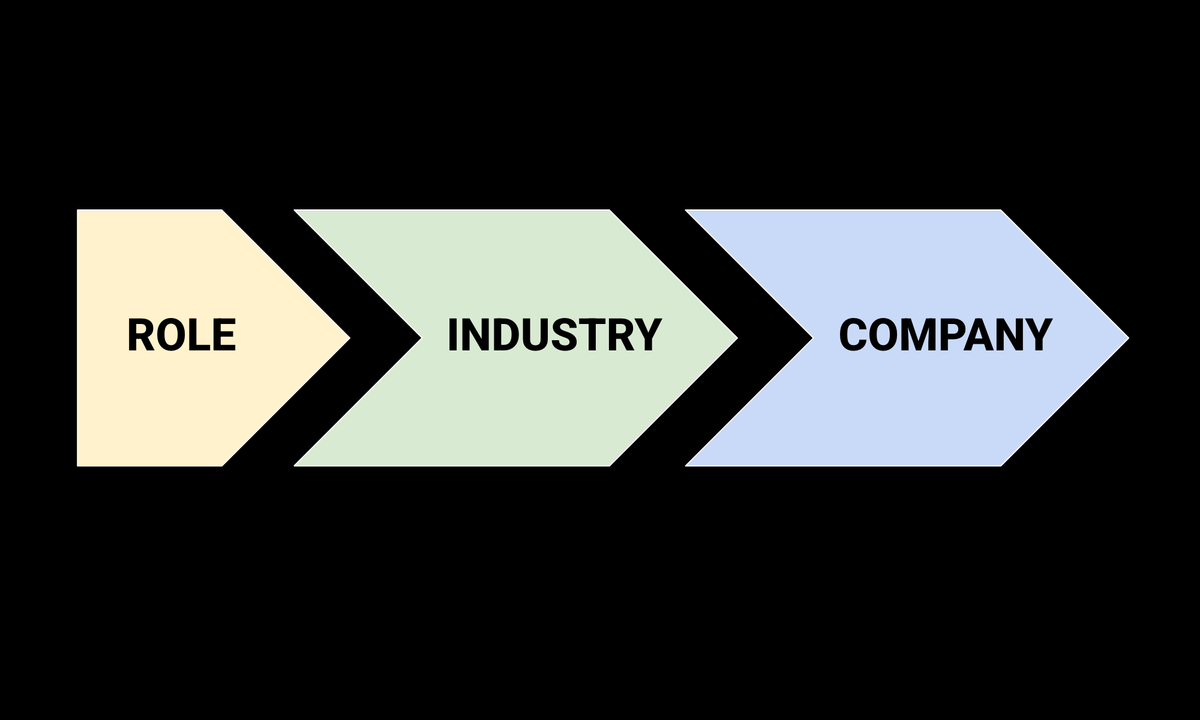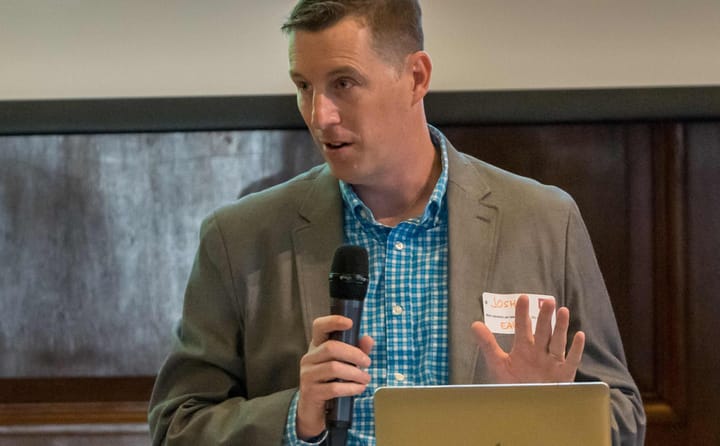Most MBA Job Seekers Have it Backwards. Learn a Haas Career Expert's Framework
According to Doug Massa, Technology Relationship Manager for the Career Services Group at UC Berkeley's Haas School of Business, most MBA candidates are approaching their job search completely backwards. Here's what Doug recommends:

According to Doug Massa, Technology Relationship Manager for the Career Services Group at UC Berkeley's Haas School of Business, most MBA candidates are approaching their job search completely backwards.
Pamela and I recently connected with Doug, who shared details about his recommended approach. After nearly a decade helping students navigate challenging job markets, Massa recommends the following framework:
The Framework: Role → Industry → Company
- What's the role you want to do?
- What's the industry you want to focus on?
- Who do you want to work for – what's your target list of companies?
Many students flip this completely backwards, starting with "I want to work at Google" or "I want to work at Amazon." However, as Massa points out, if you knock on Amazon's door, the first thing they'll ask is "What can you do for us?"
Why starting with role matters
Starting with the role helps you tell your story about why you want to do this job. When you lead with your passion for a specific function – whether that's product management, marketing, or operations – you become compelling.
"If you come in with your story of why you want to do product management and why you want to do it for Amazon specifically, now you're much more compelling than the hundreds of other people who just say they want to work at Amazon," says Doug.
The reality check: "Hire for potential" is dead
The job market has fundamentally shifted in ways that make this framework even more critical. Two or three years ago, companies might say "Laura seems like she's got some product marketing skills, let's bring her in and see if she can grow into the role."
Unless you've been living under a rock, you probably already know that things have changed. Companies now say they need people who can ramp up quickly and understands their jobs.
As a result, students must demonstrate concrete experience in their target role. For someone pursuing product marketing, Massa asks them to prove:
- Where have you done consumer insights?
- Where have you worked collaboratively with product management?
- Where have you created content or done test and measure activities?
The days of banking on pure potential are over.
Getting specific within your target industries
Once you've identified your target role, Massa's framework shines in how it approaches industry selection. Take tech, for example – it's SO broad that you need to go deeper.
Using fintech as an example, Massa demonstrates how to drill down:
- Do you want payments?
- Buy Now, Pay Later (BNPL)?
- Neobanks?
- Large traditional banks moving into tech?
"If you say you want Buy Now Pay Later, well, who are the top five companies in that space? There's Klarna, Affirm, and others. What about neobanks? There's Chime, SoFi, Greenlight." This approach quickly generates a meaningful target list.
Setting realistic expectations about career pivots
Perhaps most importantly, Massa sets realistic expectations about pivoting in your career: "You might not get role, industry, AND company in this market.... but if I can get two out of three, I'm happy."
This approach acknowledges current market realities, while still maintaining strategic focus. Just because you get an MBA doesn't mean you're going to land the dream role at the dream company you thought about two years ago. We're not saying it's impossible... but we ARE stating that it may take a few steps.
Beyond the framework: Understanding the realities of the market
Several other insights from Massa's interview are worth noting:
AI proficiency is non-negotiable: "Every company I spoke to this summer about fall recruiting mentioned AI. Several top companies told me that AI proficiency is going to be part of every job description for internships. Companies want candidates who haven't just used AI tools but have influenced others to adopt them."
Double pivots are risky: "If you're looking to change both your role AND your industry, that can be really tough in this market. I always tell [students] to focus on one pivot first. Use your internship to validate the role, then explore different industries during your second year."
Preparation is everything: "I can usually tell pretty quickly when a student hasn't done the required groundwork. If they haven't met with a coach, if their resume still needs lots of help, if they haven't worked on their story – I can see they're just grasping at anything."
What's next
Massa's framework works because it forces clarity and strategy.
Your career is long – this is just the beginning. Starting with the right framework can make all the difference in landing that crucial first role out of your MBA program.
Stop leading with where you want to work. Start with what you want to do. The companies will follow.
Check out our full interview with Doug Massa on the MBA Pathfinders blog.


